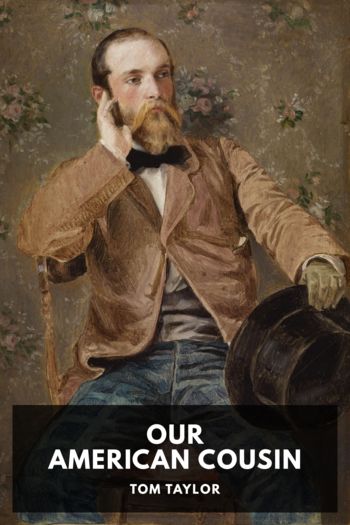Daughters of the Summer Storm by Frances Statham (best sci fi novels of all time .TXT) 📗

- Author: Frances Statham
Book online «Daughters of the Summer Storm by Frances Statham (best sci fi novels of all time .TXT) 📗». Author Frances Statham
His hand tightened on her arm. "Well then, you shall have your wish, cousin. For soon, all of Charleston will be laughing at you. You know how gossip spreads."
Marigold flung off Crane's hand from her arm, and with tears blurring her sight, she walked proudly down the path toward the house.
To get to her room before the weeping began—that was all she asked. And once inside her bedroom, she hurled herself onto the bed and smothered her sobs in the feather down pillow.
Maranta, still sleeping soundly in the other bed, was not aware that, for Marigold, the world had come to an end.
"Miss Marigold, wake up," Feena's voice urged her. "Your papa wants to see you right away."
Vaguely, the woman's voice penetrated her consciousness, but Marigold did not want to wake up. Something too painful was waiting for her, ready to break her heart. She groaned and turned over, hiding her face from the light.
"No use to pretend you're still asleep, Miss Marigold," Feena remonstrated. "I don't know what you did last night to make your papa so angry and your maman so sad. But you'd better get those dainty feet out of bed and on the way to the library."
The tawny yellow cat's eyes were dull and lifeless in Marigold's face as they surveyed the people in the library—the triumphant Crane Caldwell, standing beside the drapery of the French doors; her father Robert Tabor, scowling behind his mahogany desk; and her mother Eulalie, seated quietly on the divan.
"You wished to see me, Papa?" Marigold asked, hiding her nervousness at his summons.
The man stared at her with narrowed eyes while his hand opened and closed over the gold letter opener on his desk.
"Yes, Marigold," he answered finally. "Crane has informed me of what happened last night—that you were planning to run away with the man I had forbidden you to see again. Do you deny it, Marigold?" he asked.
"No, Papa," she replied and then was silent.
"Is that all you have to say for yourself?" Robert asked, his temper rising. "No apology—no word of explanation to your mother or me?"
"I. . . am sure that Crane has. . . told you everything."
"Oh, Souci," Eulalie said, her voice showing her sadness.
Marigold waited in the center of the room and stared ahead, looking neither at her mother or father. She would not beg for forgiveness in front of Crane. Instead, she stood as some prisoner in the dock, waiting for her sentence—the punishment to be meted out for her behavior—for her sin of misjudging Shaun Banagher, thinking he truly loved her as she had loved him.
"Then, Crane's solution seems to be the only possible one," Robert Tabor pronounced, "to keep you from being utterly disgraced. No decent low country family would ever welcome you as a daughter-in-law, when word gets out of last night's escapade."
Her father's voice was heavy to match her own heavy heart. "Is that all, Papa?" Marigold asked, still standing before him.
"For now. You may go to your room, Marigold, until I can make the proper arrangements for your marriage to Crane."
Her father's words barely registered. Dismissed, she turned and walked slowly out the door without looking in Crane's direction and up the stairs to her room.
And Robert Tabor, still seated at the desk, watched as Eulalie, with tears in her eyes, excused herself from the room.
Marigold's submissiveness was something new—something that Robert did not know how to deal with. If she had complained or refused Crane's offer, as he had expected her to do. . . But Marigold was like a ghost, with no life left in her—a fact that chilled Robert much more than Marigold's wayward behavior.
Huddled in the window seat, Marigold stared out the window into the garden. No sun was visible. The sky was overcast, with clouds hovering in the distance. It was a suitable day for what had taken place—the burial of all her dreams, the complete destruction of her considerable pride. How could Shaun do this to her—jilt her and then laugh about it, broadcast it to the world? Marigold put her hands over her ears to drown out the imagined laughter. And it was in this position that Eulalie found her, after knocking at her door and getting no answer.
"Souci," Eulalie called in her soft, gentle voice, waiting for Marigold to take her hands from her ears.
Marigold looked up, seeing her mother before her.
"You do not have to marry Crane, you know," Eulalie assured her daughter. "If you wish, I will talk with your father. Perhaps I can persuade him to let you wait, at least."
"I don't care about anything anymore," Marigold replied. "I only know I can't stay in Charleston." Marigold's voice broke, and she looked out into the garden again.
"Do you love Shaun Banagher that much—to leave your family and the life you know, just to avoid seeing him again?"
Feeling the intensity of her mother's question, Marigold stared at Eulalie. How could she know the feeling inside, unless. . .?
Eulalie's lip trembled. It seemed little more than yesterday that she was busy packing her own valise to escape Columbia, the state capital, and Robert Tabor. Her mind, skipping over the years, was brought back to the present by Marigold's words.
"I. . . love no one."
Despite her denial, Eulalie was not convinced. Yet, if Marigold wanted to leave Charleston, it might be best for her to marry her cousin.
"Crane loves you, Marigold. He would be kind to you, I am sure. And Julie is pleased to think she might have you as a daughter. I would miss you, of course. But daughters have a way of getting married and leaving their mothers. I knew it would happen some day, but not quite this soon." Eulalie's attempt at lightness belied the sadness in her eyes. "And even Maranta. There is a possibility that she will leave us, too."
"Then Papa has given her permission to enter the convent?" Marigold asked.
"The convent? No, Robert would never consent to





Comments (0)